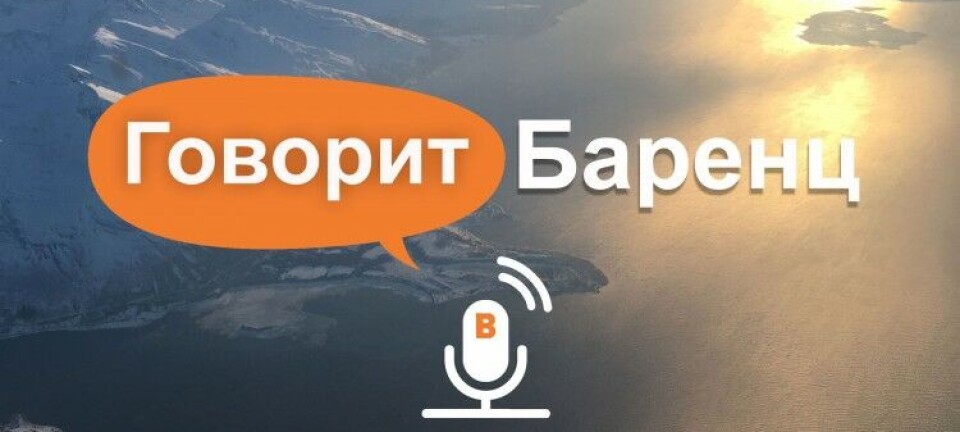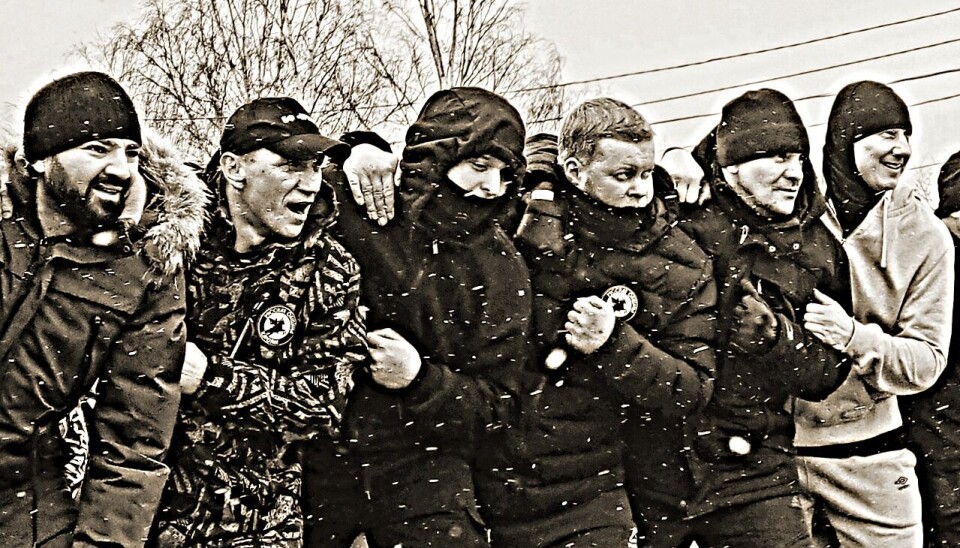
Nationalists come forth with raised fists
The ultra-nationalistic organisation Russkaya Obshchina (Russian Community) is gaining strength in Russian regions. Its members stage provocations, conduct raids against migrants, engage in confrontations, and write denunciations. They operate under the guise of protecting society from external and internal enemies, with the silent agreement and even the support of the authorities.
August 5, 2025. Sandarmokh is a forest tract in the Medvezhyegorsk district of Karelia, where several thousand people who were killed during the Stalin's Great Terror are buried. Every year on this day, people go there to pay tribute to the repressed. Earlier the ceremony used to begin with a religious procession and speeches by regional officials, who spoke about the inadmissibility of repeating the bloody lessons of history. Now, instead of officials and priests, there are people with covered faces in black uniforms or camouflage.
Three men in balaclavas perform the military song “Katyusha” in a disorderly but cheerful manner right in the middle of the forest, which has the official status of a memorial cemetery. And then: a man splashes water from a bottle into the face of a member of the local Petrozavodsk city council, environmental scientist Dmitry Rybakov.
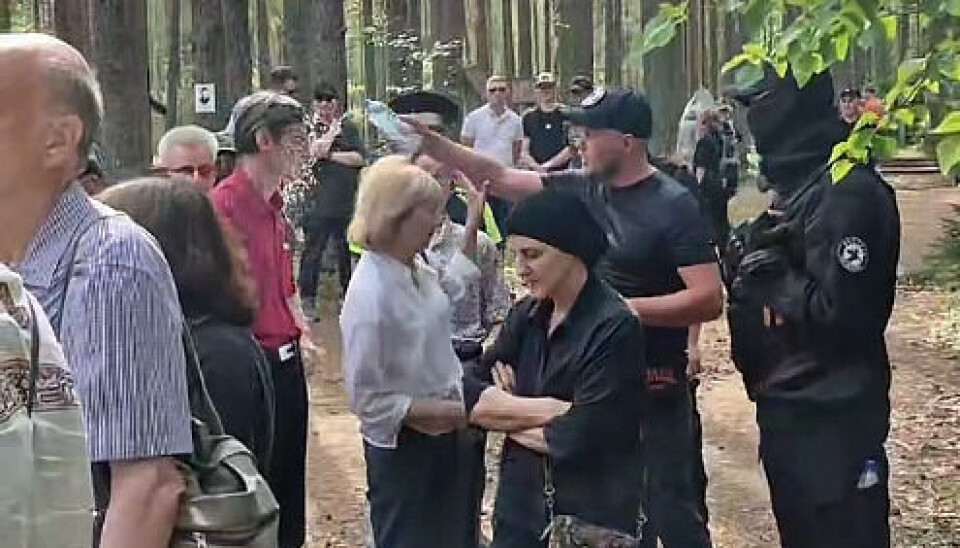
The man with the bottle is the coordinator of the Russkaya Obshchina in Karelia, Evgeny Ivanov. He came to Sandarmokh with his wife Yulia and a large group of comrades. A video of the action was posted on the organisation's public social media page, claiming that “foreign agents” had gathered at the cemetery to wage an information war against Russia, and that the community members had prevented it. However, the report on the attack on “unfriendly elements” caused an unexpected reaction from friendly elements.
The social media post triggered several comments.
“Russkaya Obshchina, guys, why are you mocking the people who were killed by the Stalinist regime? Maybe I'm missing something? You seem to be imperialists (I am an imperialist myself), but you come to defend Soviet executions? My relatives, they were priests, were shot by the NKVD and the Cheka without trial or investigation at the walls of the church in the Olonets district! And you dare to laugh at them? I fully support your fight against illegals across the country, but here, it's like a knife in the heart judging from what I've seen,” wrote Semyon Yakovlev in the comments.
“Music on the bones [of the dead], hysterics, some sort of relationship clarifications... This is neither patriotic, nor humane, and certainly not manly. I did not expect such nonsense from the Russkaya Obshchina,” said the well-known Karelian public figure Yulia Andreeva.
However, dissatisfaction with the violent actions of the nationalists in Sandarmokh is an exception. The Russkaya Obshchina is quickly expanding its membership, and acts with more and more confidence. Increasingly, it is becoming a new frightening phenomenon in Russian society.
“Every normal Russian is a nationalist at heart”
The Russkaya Obshchina appeared in 2020, but gained strength for real with the start of the full-scale invasion of Ukraine. The organisation openly enjoys the support and patronage of the authorities. The head of the Russian Investigative Committee pursues police officers who detain community members for hooliganism, local officials provide the organisation with new premises, and the police patrol the streets together with members of the Russkaya Obshchina.
However, street patrols are not their only activity. In October 2024, members of the Russkaya Obshchina along with forces from the Interior Ministry (SOBR) stormed a private party in Arkhangelsk.
“None of them introduced themselves. They photographed us and our documents. Some of us were hit with a baton, others had their phone broken. These 'community members' had no right to be there, but apparently, if they are with SOBR, they can do anything. They detained a girl who refused to show her passport,” a participant of the event told the Barents Observer. Members of the group also filmed guests on their phones and later posted the pictures online, which led to harassment.
As a result, the organiser of the party, Ekaterina Filippova, was sentenced to 200 hours of community service because of a cross-shaped lamp hanging on the wall during the party. The court considered that the lamp 'offended the feelings of believers.' As it turned out, the report on Filippova was made by a member of the Russkaya Obshchina, who lied in court that he easily got into the private event.
The community members, it seems, not only assist the security forces, but sometimes also perform their functions - or think they do. In Arkhangelsk, members of the organisation conduct raids on places where migrant workers live. In September 2025, they “inspected” a hostel on the outskirts of the city and reported about the case on social media. In a video, men with frightened faces meekly hand over their documents to the community members, who photograph them.
According to Russian laws, only state officials from certain law enforcement bodies can check documents. “A violation of migration legislation has been identified, and appropriate appeals have been prepared and sent to the supervisory authorities,” declares the Russkaya Obshchina, which itself should be checked for violating the law.
Each such raid provokes a strong reaction from the community's supporters. In the comments, there are calls to tighten control over migrants and xenophobic statements. “Their filthy women wrapped up in hijabs walk along Moskovsky [Prospekt], looking so brazenly as if provoking a conflict, and they all disgustingly chew gum,” writes user Natalia Anikeeva.
The Russkaya Obshchina supports the war in Ukraine, opposes abortions and declares adherence to orthodoxy. But the main card of the organisation is nationalism.
“We are a platform for uniting Russian people, reviving Russian traditions of unity, community, defence of the legal rights and interests of the people who constitute the state,” a description of the organisation by the regional branch in Murmansk reads.
Nationalists are those who love their homeland, their people, their culture… I think every normal Russian person is a nationalist at heart,”
says Vladislav Nizovsky, an active member of the Karelian branch of the organisation.
The strategy appears to be successful. The social media of the regional branches of the Russkaya Obshchina have thousands of followers. It can be assumed that some of them are bots, but the number of members is indeed increasing. Men, women, workers, entrepreneurs, former security officers, as well as soldiers fighting in Ukraine are joining the community.
“Vladimir. 26 years old. Petrozavodsk/Sortavala. By education a historian. Currently working as a history and social studies teacher. Hobbies: studying humanities and social sciences”.
“Irina. Petrozavodsk, 48 years old. I work in a kindergarten. Unmarried, 1 child. Orthodox, and the child too. Hobbies - if there is a free moment - embroidery. Sometimes volunteering”.
“Ivan from the village of Shuya. 39 years old. Orthodox father of many children. Surveying engineer, land management, real estate registration. Rural hobbies - nature and technology. For "Orthodoxy, Autocracy, Nationality."
“My name is Alexander. I am from the city of Segezha, Republic of Karelia. At the moment, fighting in the special military operation. I hope to return home and join the Russkaya Obshchina.
“Vitaly, 45 years old, settlement Loukhi, I work shifts in the Leningrad region, have a son, live in a civil marriage. Why I want to join: I'm fed up with this lawlessness created by foreign specialists. Every day in the news there are murders, rapes and so on, it's time to put an end to this”.
“Elina. Petrozavodsk. Computer specialist, information security. I am useful... I am against the adversaries in the city”.
These are short profiles from the telegram channel of the Russkaya Obshchina in Karelia - applications for membership that appear almost every day. The Barents Observer spoke with a resident of Karelia familiar with the organisation's activities. She agreed to speak on condition of anonymity, knowing that her interlocutor has been declared a 'foreign agent’ in Russia, and that the media where he works is a so-called 'undesirable organisation.'
“Of course, people are united or are uniting around a common idea, and it is quite clear - to help those who are in trouble. And this does not mean that help is provided to those who have 'suffered' from representatives of other nationalities, but also to those who are now in the special military operation, those who have suffered from domestic violence (women).
In general, the idea is, as I understand it, the revival of Russian traditions, values (orthodoxy, the cult of family, national celebrations, etc.). And what's wrong with that? It is our history, our religion. No one is pressuring anyone, they just emphasise glorious good traditions and faith.
What appears attractive in all this is the concern for ordinary people, like helping everyone regardless of status, position, or gender. And doing it selflessly. Let's say, for the greater good. The theme of kindness is evident everywhere.”
The theme of kindness is evident
Russians see in the Russkaya Obshchina a replacement for the inactive law enforcement system, believes Alefina (not her real name), a native of Murmansk. “Probably, people have some desire to unite in troubled times,” she says.
The organisation gives its members access to a “panic button” to call for support from its forces and tells stories about how it helps people who could not find protection from the state.
The Russkaya Obshchina pays a lot of attention to sports, with focus on martial arts. At festivals - demonstrations of fistfights and “wall-to-wall” fights [a Russian tradition in which two lines of men face off using their fists], in training - hand-to-hand combat, including knife fighting.
“One of the activities of the Russkaya Obshchina is “buza”, Russian hand-to-hand combat!” - reports the Karelian organisation about the training. “This includes knife fighting, hand-to-hand combat, self-defence, songs and dances. It is strength, courage, bravery, history and love for being Russian!”
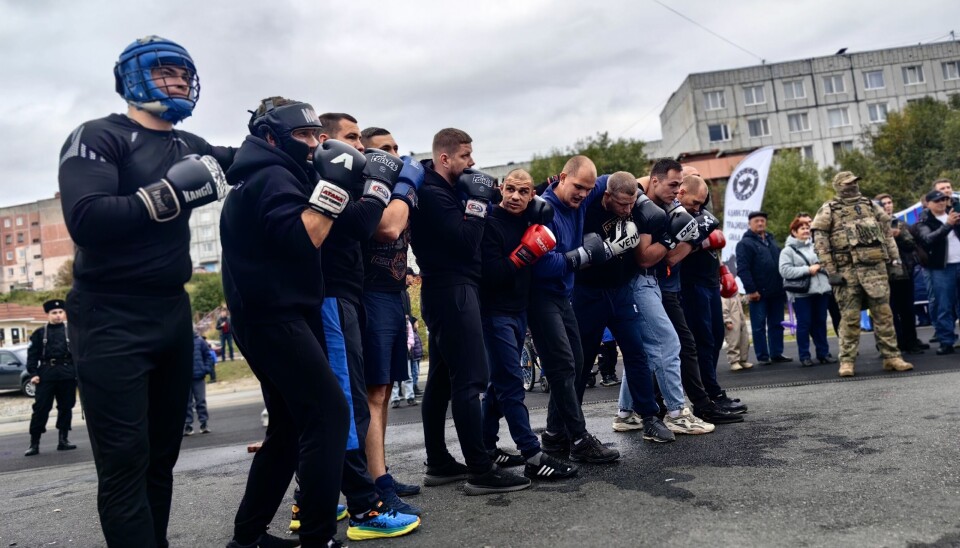
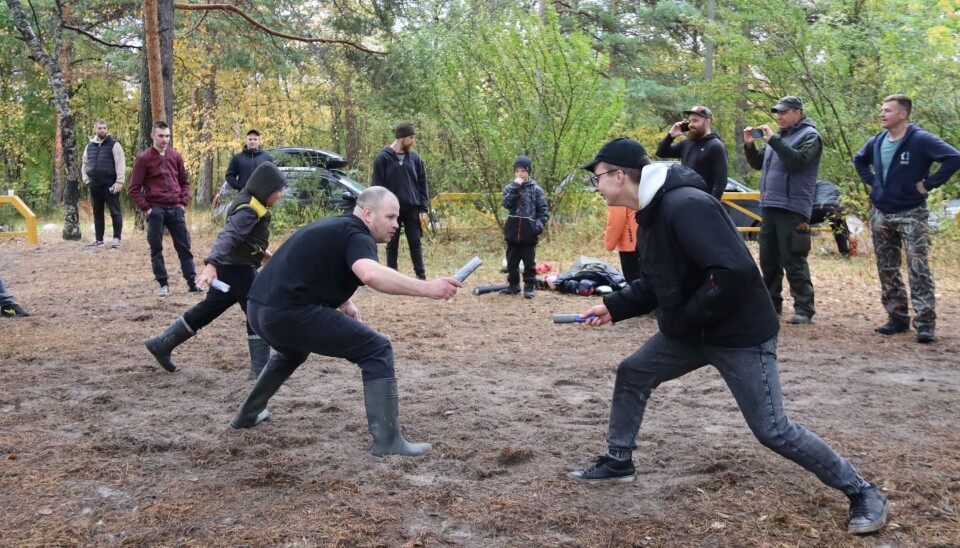
“We conducted knife fighting training, tactical medicine classes. We regularly have boxing training adapted for street fights,” report members of the organisation in Arkhangelsk. The members of the organisation are taught to fight at the local sports club.
The skills acquired in training have a quite practical function. The Russkaya Obshchina not only catches drunkards together with the police, but also sorts out issues with those who somehow offended or hurt its members.
“Yesterday, an unacceptable incident occurred at one of the largest enterprises in our city. The symbol of our organisation on the locker of our Brother, who works at this enterprise, was destroyed with a knife. Our symbol depicts the holy Blessed Prince Alexander Nevsky.
Representatives of the Russian Community of Karelia and the DND [a voluntary people's squad] approached the instigator of the conflict. During the dialogue, we managed to explain that the destruction of our symbol is an insult to our traditions and values.
The Russian Community, in resolving the interests of society, is ready for any dialogues and any development of events,” - it is stated on the public page of the Karelian branch of the Russkaya Obshchina.
The organisation posted a short video report about the event. Judging by the video, two dozen strong men came to the 'dialogue'. They demanded an apology for the damaged sticker. And they received these apologies.
Balaclavas, black uniforms, marches - the Russkaya Obshchina is forming a brutal image.
"They march in formation in the evenings. It's just surreal, and it was impossible to imagine until quite recently. It's a kind of threat that you don't know what to do with. You're always ready for the police, for some state bodies, and here are some people who can do whatever they want, and they'll get away with it. If something happens, 'OVD-info' won't help you," reflects feminist activist Darya Yakovleva from Kaliningrad.
Darya leads the Feminitive movement. Activists in the movement help women and queer people fight domestic and sexualised violence, organise evenings where they write letters to political prisoners, hold educational events - for example, they talk about reproductive rights. In 2024, a police report was filed against her. She was accused of 'LGBT propaganda.' The author of the report is Maxim Makarov, who is the leader of the “Russkaya Obshchina of the Kaliningrad Region”. This organisation was established in 2015 and operates independently of the organisation of the same name. But it works in exactly the same direction.
“They have become very active, these radical nationalist groups. This is their heyday, their time. Ideologically, they feel very comfortable. This has a strong impact on the present and will affect the future,” says Yakovleva.
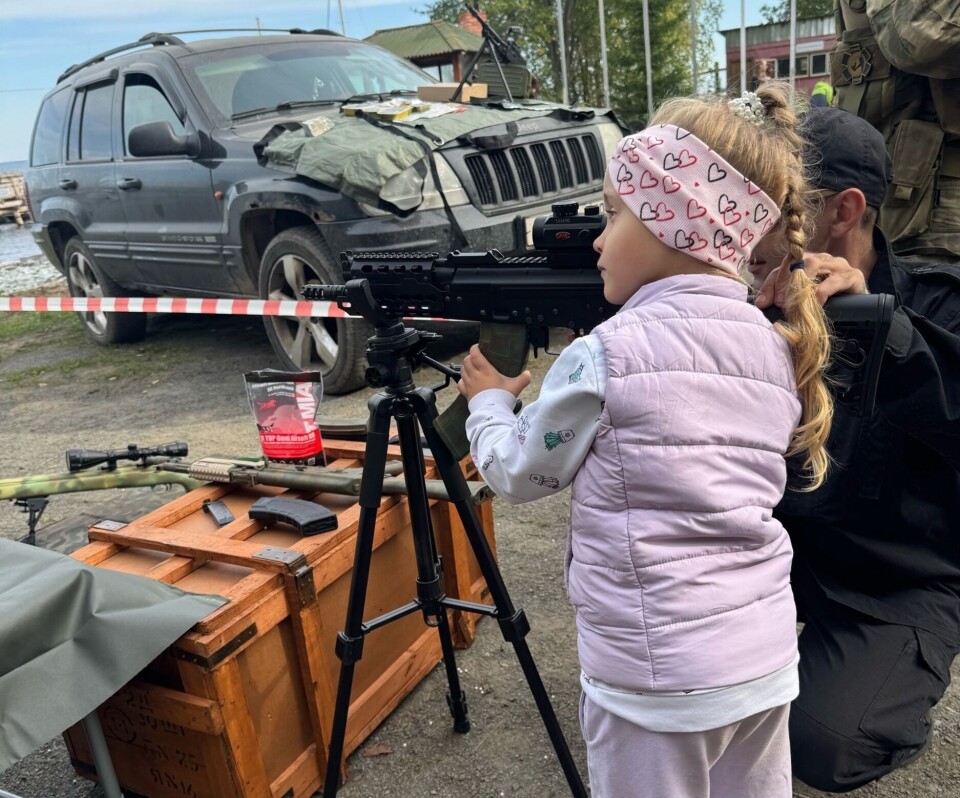
“The Cossacks, the Russkaya Obshchina, and other 'black squads' - they are all places for the discontented, but not organised by the security forces,” says a resident of a northern Russian region, with whom Barents Observer managed to speak.
Barents Observer tried to get in contact with the coordinators of the Russkaya Obshchina in several northern Russian regions, among them Karelia, Komi, Murmansk, and Arkhangelsk regions. A response came only from Arkhangelsk.
“You yourself have awakened the Russian bear,” wrote a user with the nickname “Vasilyevich” to the journalist. “Foreign agents are not supposed to know more.”
The author of this text has himself been declared a 'foreign agent' by Russia's repressive censorship authorities.



















